Reading Skills Building Vocabulary Worksheets for Ages 4-8
7 filtered results
-
From - To
Enhance your child's reading skills with our "Reading Skills Building Vocabulary Worksheets for Ages 4-8." These engaging resources are designed to expand vocabulary and improve comprehension through fun, interactive activities. Suitable for preschoolers to second graders, the worksheets offer exercises like word matching, sentence completion, and context clues to bolster language development and reading confidence. Carefully crafted to be age-appropriate and enjoyable, our worksheets not only support early literacy but also foster a lifelong love for reading. Explore our selection, tailored specifically to nurture young readers on their journey to language mastery.
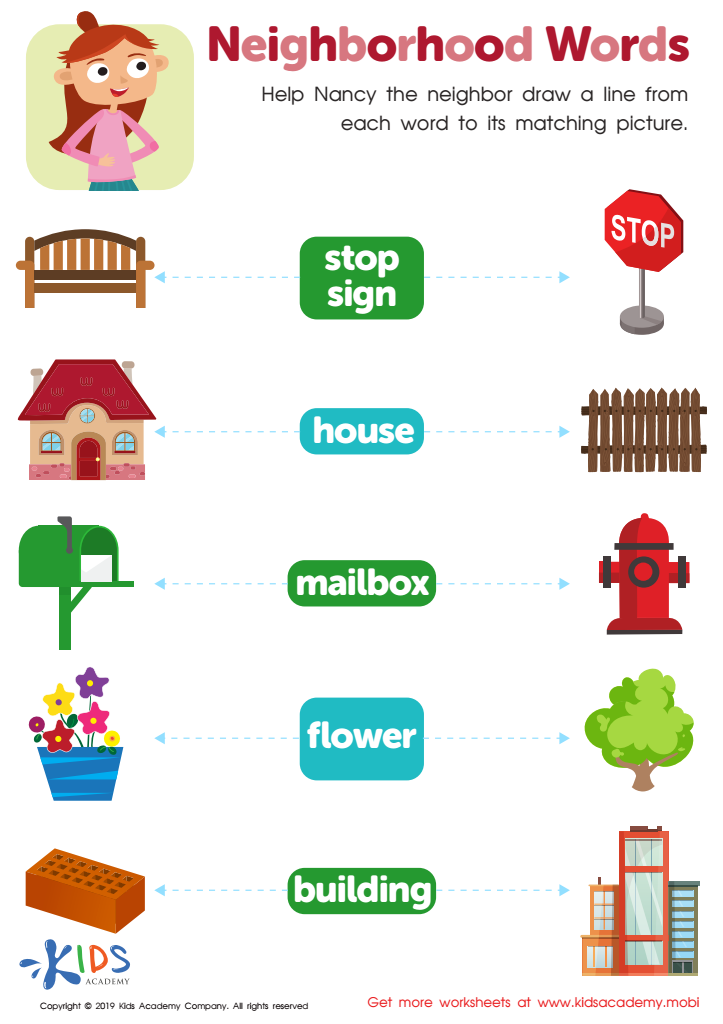

Neighborhood Words Worksheet


Short Vowel Eggs Worksheet
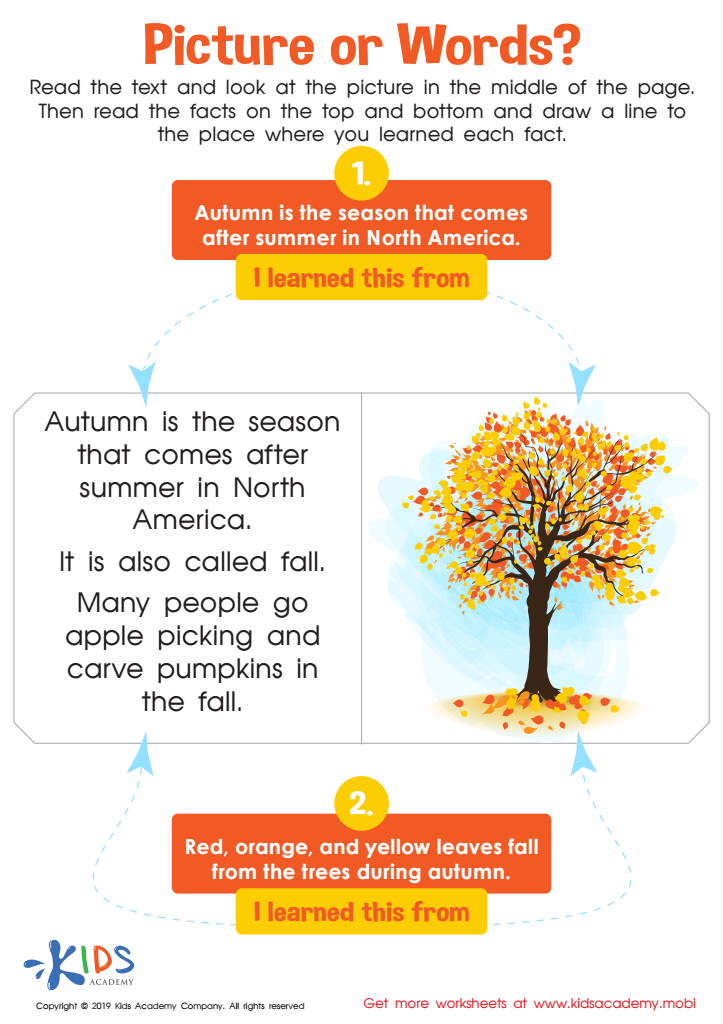

Picture Words Worksheet
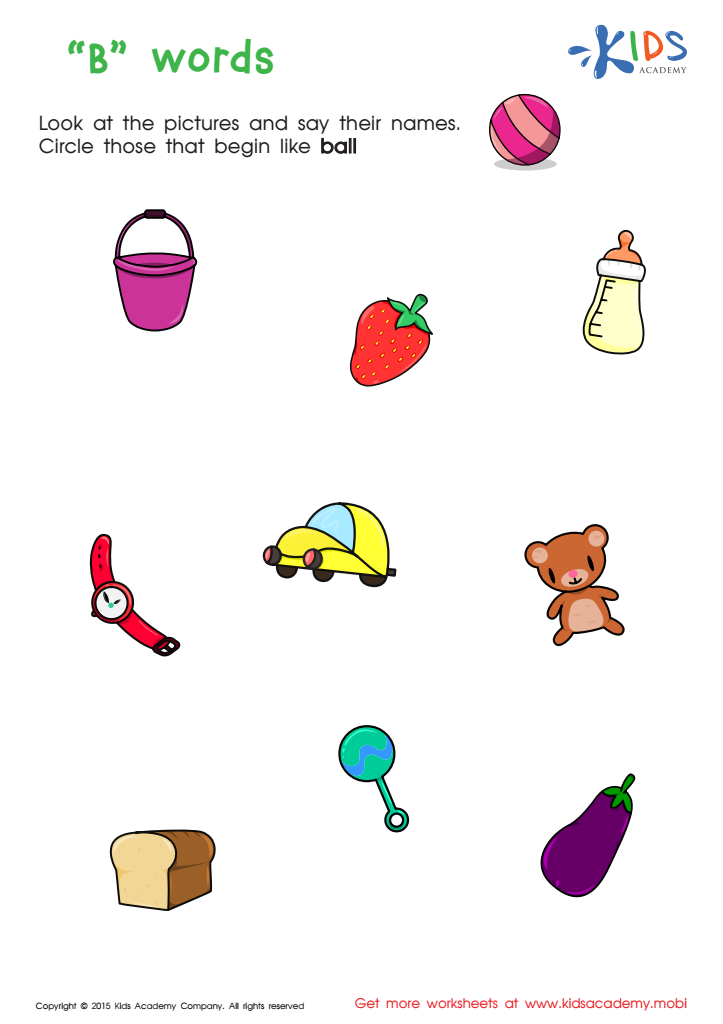

First Words Worksheet
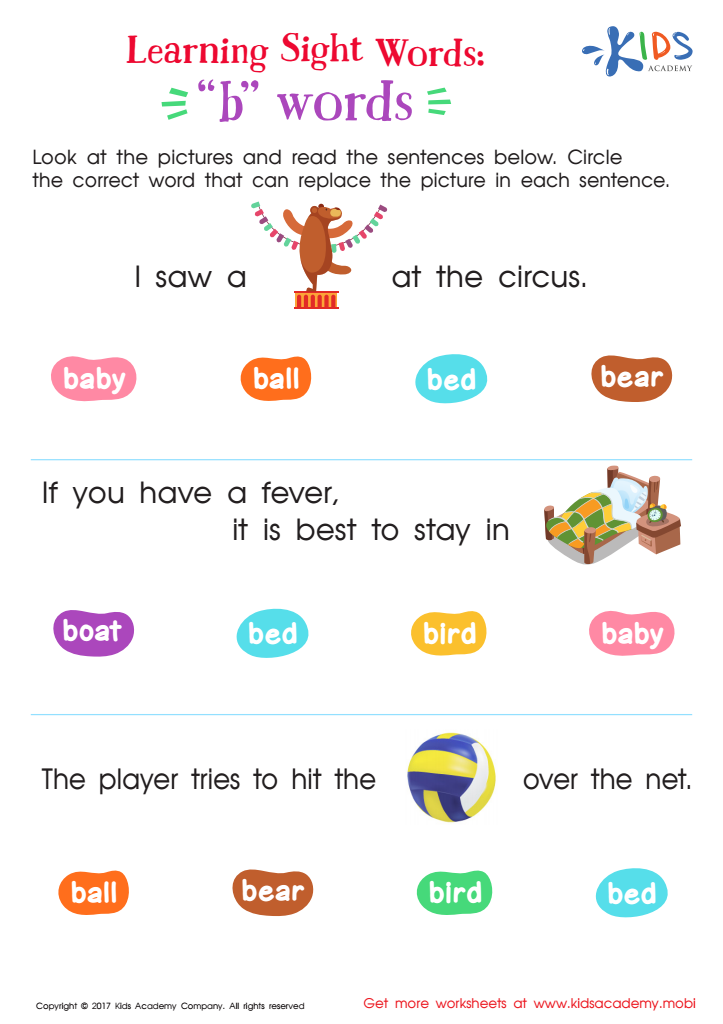

"B" Words Printable Sight Words Worksheet
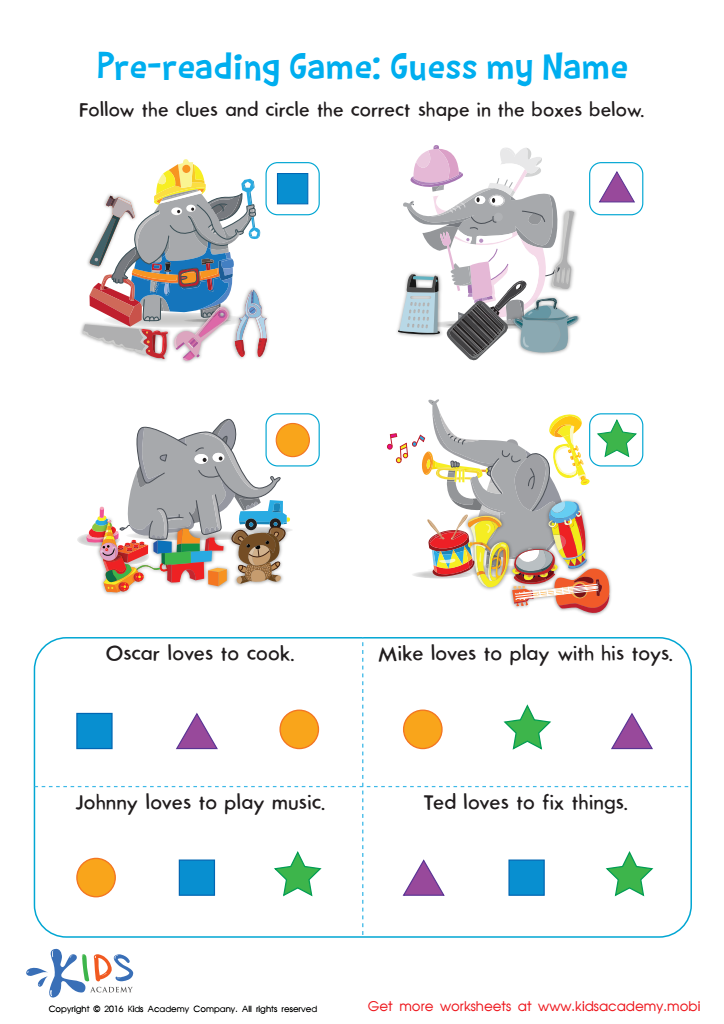

Pre Reading Worksheet Guess My Name
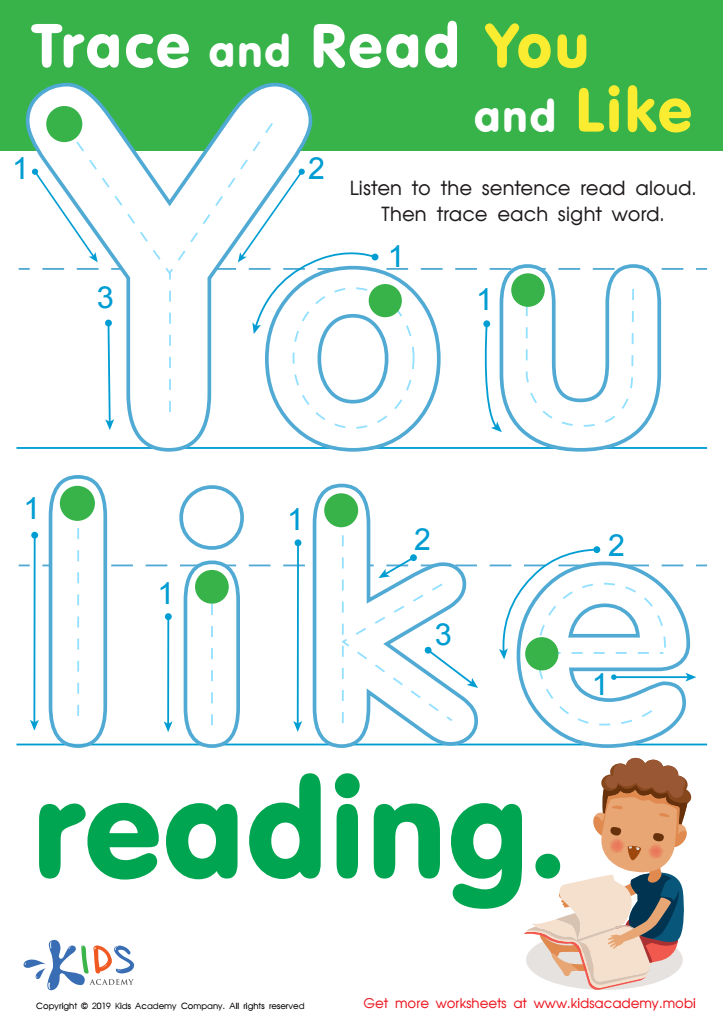

Trace Read You Like Worksheet
Parents and teachers should prioritize building vocabulary in children aged 4-8 because it serves as a foundational element for future academic success and overall cognitive development. This stage is pivotal for language acquisition; children are highly receptive and can absorb new words more readily. Proficient vocabulary enhances reading comprehension by allowing children to understand more complex texts, thereby making reading a more enjoyable and effective learning experience.
A strong vocabulary also equips children with the tools to express themselves more clearly and confidently in both spoken and written forms. This advanced ability to communicate is critical for social interactions and academic participation, fostering better relationships and higher engagement in classroom activities. Additionally, an extensive vocabulary encourages curiosity and learning across various subjects, bridging connections between new concepts and existing knowledge.
Moreover, building vocabulary at an early age can help close the word gap, a disparity that can emerge between children of different socio-economic backgrounds. Early intervention ensures that all children have the linguistic resources needed for equitable educational opportunities. Overall, fostering robust vocabulary skills supports not just language development but broadens thinking capacity, enhances creativity, and underpins lifelong learning habits.
 Assign to My Students
Assign to My Students






























